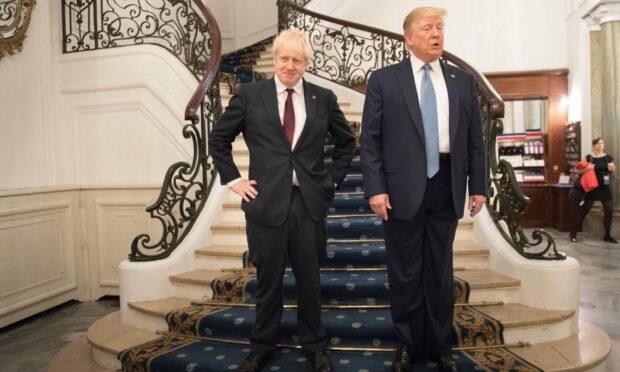For most of the 20th century the Conservatives dominated British politics, repeatedly winning elections and directing the country’s destiny with patrician confidence.
Their priorities were consistent: limited government; lower taxes; law and order; strength abroad; and the protection of institutions. Oh, and the retention of power, for which any of the above could be justifiably compromised.
And today? Boris Johnson’s government is an interventionist behemoth, locking people in their homes, shuttering businesses, spending astronomical sums on furlough and healthcare, running up debts that will dominate and constrain our economy for years to come. On this unfamiliar and, to be fair, enforced terrain, it has proved timid, fractious and unassured.
It has also declared war on the institutions that have guaranteed our national stability: the courts and judges; universities; the media; parliament itself; and even the rule of law. When it comes to wealth creation, Johnson’s crude jibe about the business community will long be held against him.
His Government has enthusiastically embraced the thinnest of Brexit deals, gambling our future economic prospects on an antique ideology of sovereignty-max. Our most important international relationships must be remade, under potentially punishing new terms. We are regarded globally as an oddball. The Union may fall, and many English Tories seem relaxed at the prospect.
Moderate conservatives have expressed grave concerns about all this, and as a consequence have either been booted out or have walked away in disgust. Intelligent and thoughtful people like Ken Clarke, Justine Greening, David Gauke, Philip Hammond, Nick Boles, Amber Rudd and Rory Stewart, to name only a few, have found the modern Tory party an unwelcoming home. The cockpit was instead seized by the radicals of Vote Leave, who made full use of the empty vessel that is this prime minister.
Nothing happens in isolation, and, of course, in America everything is bigger. The disaster-movie convulsions of the Republican Party have shaken the planet. The racism, misogyny, avarice and narcissism of Donald Trump dragged an entire, vast movement to the extremes, culminating in last week’s bloody invasion of the Capitol. The worst instincts of the right have been licensed, with ambitious politicians clambering over one another to be tribunes of this ghastly new order. Britain’s Conservatives have not been immune.
A tricky spot
And now what? In a few days, Trump will be gone into historical infamy. Republican leaders seem to be groggily coming to, having realised at the final moment, with the monster literally at their door, that aggressive, bigoted nihilism is no way to run a country. Joe Biden’s Democrats will seek urgently to repair the damage and retool American democracy.
This leaves the British right in a tricky spot. Johnson, especially, appears to have run off the edge of a cliff, his legs spinning over the void. His enthusiasm for – and even tactical embrace of – Trump and Trumpism suddenly looks very unwise indeed. The Biden team were watching all along, and seem to have made up their minds about the kind of man the prime minister is.
Britain is emerging, slowly and unsteadily, from a grimly prolonged holding pattern. For ages, the nation has been unable to move past the debate over Brexit, or do much more than deal with the consequences of coronavirus. But in coming months, the vaccination roll-out should begin to lift the bug’s hideous grip. A Brexit deal has been agreed and signed. Cummings and most of his cohort have gone. Sanity has returned to the White House.
Self-inflicted problems
It is reasonable, then, for the electorate to ask of its rulers, “what now?”, and to expect more than an “um, cripes” in return.
Which brings me back to my original question: what does it mean to be right-of-centre in 2021? On each of those traditional priorities I mention, the Conservatives have lost their way. It would obviously help if they had a strong, focused leader to now put them back on track, but they do not. Yet they will must, still provide an answer. And they will have to do so while addressing problems they themselves have created: wrestling with the Brexit fall-out; desperately seeking trade deals with more powerful nations and blocs; bringing down the national debt; saving the Union; repairing vital relationships fractured by their dead-end culture war.
To put it mildly, this prime minister and most of this current cabinet do not inspire confidence that they are up to the job, particularly with Keir Starmer restoring Labour as a legitimate competitor for power. Johnson should remember that his party is ruthless when it comes to failing leaders.
The British right gives every impression that it has lost its mind and its soul. I expect we shall now learn whether this condition is only temporary.

